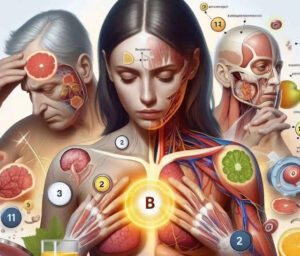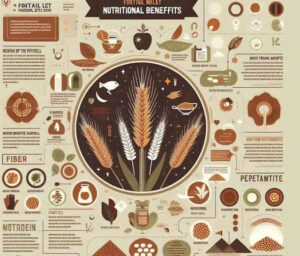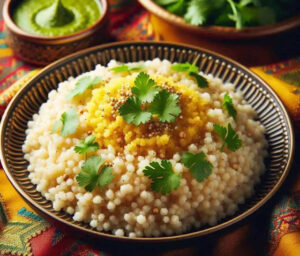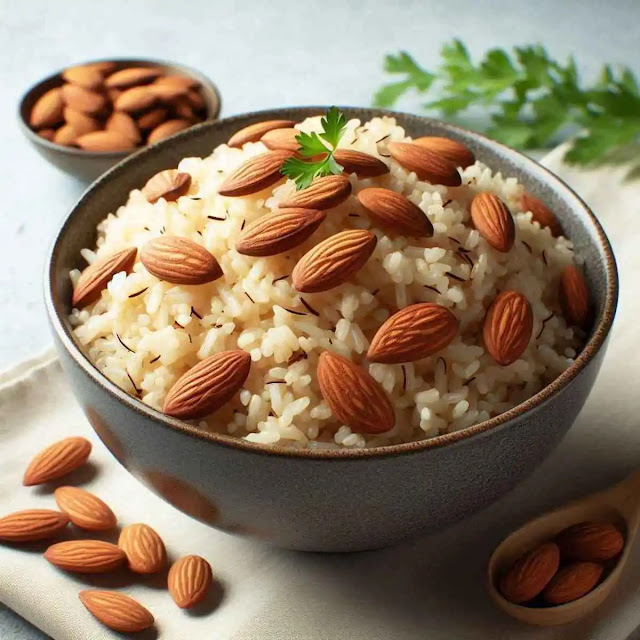Steps to Combat Vitamin B12 Deficiency with Foxtail Millet
 |
| Foxtail Millet |
What is Vitamin B12?
Production of red blood cells: B12 is necessary for the formation of healthy red blood cells, which carry oxygen throughout the body.
Neurological health: it helps maintain nerve cell health and supports cognitive function.
DNA synthesis: B12 plays a role in DNA synthesis, which is crucial for cell division and overall health.
 |
| Vitamin B12 |
Understanding Vitamin B12 Deficiency
Vitamin B12, also known as cobalamin, is a water-soluble vitamin that plays a vital role in maintaining healthy nerve cells, producing DNA, and is required for the production of red blood cells. A deficiency in vitamin B12 can lead to various health issues, including fatigue, celiac disease, weakness, anemia, and neurological problems.
Causes of vitamin B12 deficiency
caused by various factors:
Dietary deficiency:
People who follow a vegetarian or vegan diet may not absorb enough B12 as it is predominantly found in animal products.
Absorption problems:
Conditions such as pernicious anemia, Crohn’s disease or celiac disease can affect the body’s ability to absorb B12.
 |
| Vitamin B12 Deficiency |
Age-related factors:
In older adults, absorption may be limited due to decreased stomach acid production.
Symptoms of B12 deficiency
The Nutritional Powerhouse: Foxtail Millet
Foxtail millet, scientifically known as ‘Setaria italica’, is a small-seeded grain that has been cultivated for thousands of years. It is particularly popular in Asia and Africa and is known for its resilience under harsh growing conditions. The special thing about foxtail millet, however, is its high nutrient content.
Key Nutrients in Foxtail Millet
1. Vitamin B12: Foxtail millet is a plant-based source of vitamin B12, which is essential for maintaining a healthy nervous system and preventing anemia.
2. Protein:
It contains about 12-15% protein, higher than many other cereals.
3. Fiber:
Rich in dietary fiber, foxtail millet improves digestion and helps maintain a healthy gut.
4. Minerals:
It is packed with numerous essential minerals like iron, magnesium, and phosphorus, which are required for overall health and well-being.
5.Gluten-Free:
It is naturally gluten-free, making it an excellent option for those with gluten sensitivities.
6.Low Glycemic Index:
Foxtail millet has a low glycemic index, which helps in managing blood sugar levels.
Millet benefit for adolescent girls
 |
| Nutritional Benefits of Foxtail millet |
How Foxtail Millet Helps with Vitamin B12 Deficiency
1. Direct Source of Vitamin B12:
Unlike other plant-based foods, foxtail millet contains a significant amount of vitamin B12. This makes it an excellent food option for vegetarians and vegans who are struggling to get enough B12 from their diet.
2. Improves Gut Health:
The high fiber content in foxtail millet supports a healthy digestive system, which is essential for the absorption of nutrients, including vitamin B12.
3. Supports Red Blood Cell Production:
The iron and other minerals in foxtail millet work synergistically with vitamin B12 to support the production of healthy red blood cells in our body and prevent anemia.
4. Boosts Energy Levels:
foxtail millet can help to combat fatigue and boost your overall energy levels by improving red blood cell production and ensuring adequate vitamin B12 levels.
Other Food Recommend for Overcoming B12 Deficiency
Incorporate Animal Products:
If you consume animal products, include meat, fish, eggs, and dairy in your diet to boost B12 intake.
Explore Fortified Foods:
Look for fortified cereals, plant-based milks, and nutritional yeast that contain added B12.
 |
| Recommend food for B12 Deficiency |
Consult a Healthcare Provider:
If you are at risk of deficiency, consider discussing supplementation options with a healthcare professional.
Incorporating Foxtail Millet into Your Diet
Adding foxtail millet to your diet is very easy and versatile. Here are some delicious ways to enjoy this nutritious grain:
1. Foxtail Millet Porridge:
You can cook foxtail millet with milk or a plant-based alternative, whichever you prefer and sweeten it with jaggery powder, honey or fruits for a nutritious breakfast.
2. Millet Salad:
you can also prepare millet Salad, Mix cooked foxtail millet with fresh vegetables, herbs, and a light dressing for a refreshing and healthy salad is ready.
 |
| Incorporate Foxtail Millet into your Diet |
3. Millet Upma:
You can prepare a tasty Indian dish made with foxtail millet, vegetables, and spices, perfect for a wholesome meal.
4. Millet Bread:
You can use foxtail millet flour instead of regular all-purpose flour to bake bread or muffins for a nutritious snack.
 |
| Foxtail Millet bread |
Conclusion
Foxtail millet is more than just a regular grain; it is a nutritional powerhouse that can play a significant role in overcoming vitamin B12 deficiency. By incorporating foxtail millet into your diet, you can enjoy its numerous health benefits, from improved energy levels to better digestive health. So, you should try this ancient grain and experience its remarkable benefits for yourself.





